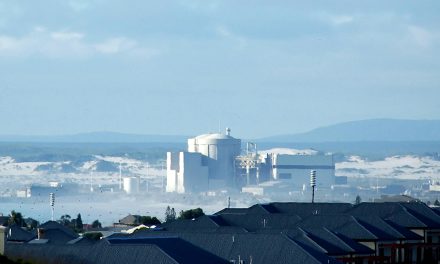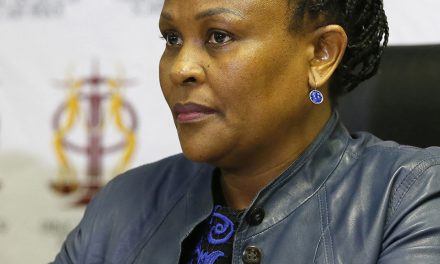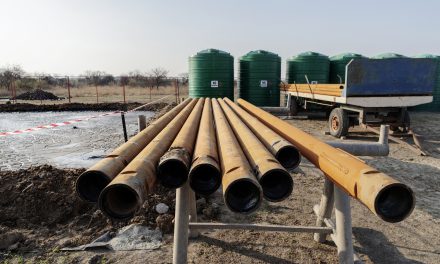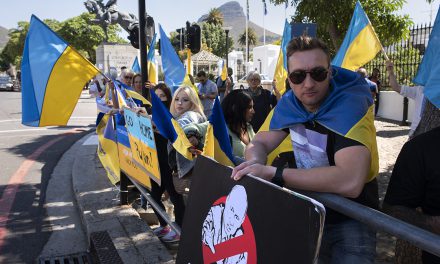Africa’s mining sector must institute critical reforms if it is to avert the deepening of the resource curse. Increasing global demand for “development” or “critical” minerals and transition fuel sources (such as liquid natural gas) renders this a governance priority.

Arid: Cahora Bassa oil and gas project in Zimbabwe.(@energy_invictus, Twitter)
The World Bank notes that, due to this demand, the production of these minerals could increase by nearly 500% by 2050.
As captured in the Alternative Mining Indaba 2023 theme “A Just Energy Transition: Unlocking Community Potential and Participation”, reforms to prevent and reverse the resource curse must give primacy to mining communities’ voices.
It is critical, from a project’s inception to its completion, to adopt effective natural resource governance frameworks underpinned by a commitment to accountability and transparency.
Recent research findings by Good Governance Africa (GGA) and the Centre for Natural Resource Governance (CNRG) into liquid natural gas exploration in the Cahora Bassa Basin in northern Zimbabwe illustrate some of the critical reforms needed in Africa’s mining sector.
Key to these findings is the need to premise projects on meaningful and continuous engagements with local communities to bridge the information asymmetry between communities, on the one hand, and the government and investors on the other.
Since 2017, exploration activities by GeoAssociates, a joint venture between Invictus Energy and One Gas Resources, have uncovered major potential liquid natural gas reserves in the Cahora Bassa Basin.
The Cahora Bassa Project comprises 101 170 hectares, incorporating the Muzarabani Prospect, a massive prospect first identified by Mobil Oil in the 1990s.
Last year, GGA partnered with CNRG to provide a preliminary assessment of how early exploration activities had affected people living in the Mbire and Muzarabani districts. The findings, delivered on 9 February at a GGA and CNRG side event during the Alternative Mining Indaba and the Mining Indaba in Cape Town, confirmed an accountability and transparency deficit characteristic of mining projects around the continent.
Interviews with residents confirm poor consultation and communication characterised by a top-down and inadequate flow of information. The affected communities showed a lack of awareness of the nature of the agreements that the project was premised on, its parameters, the risks involved and the revenue-sharing structure.
To avoid the problems brought on by diamond mining in the country’s Marange community, there is an urgent need for continuous, bottom-up, broad-based, multi-stakeholder consultations that openly inform the host communities of the parameters and multifaceted risks of the project.
This is important because the effect of mining will probably worsen their preexisting socio-economic, environmental and climate change-related vulnerabilities.
The government and investors must commit to, and implement, effective adaptation and mitigation measures in the context of floods and droughts leading to greater food insecurity.
Historically, natural resource extraction in Zimbabwe has tended to only benefit a political elite, often at the expense of local people. The Cahora Bassa Basin liquid natural gas project offers an opportunity for the government of Zimbabwe to transform the mining culture in a way that would stabilise and grow its economy.
Furthermore, the increasing global demand for “development” or “critical” minerals and transition-fuel sources offers an appropriate window to progressively review the country’s mining policies while also maintaining a commitment to global efforts to lower greenhouse gas emissions.
Averting the resource curse demands a major departure from the prevailing culture of mining practices not only in Zimbabwe but in other weakly institutionalised contexts on the continent too.
Based on the report’s findings, to entrench meaningful, broad-based discussions with local people that contribute to equitable community development, the following should be considered.
In the interest of accountability and transparency, both the Production Sharing Agreement and Petroleum Exploration Development and Production Agreement signed between GeoAssociates and the government of Zimbabwe should be made publicly available.
GeoAssociates should develop and publicly present a comprehensive, consistent community communication and engagement plan, which outlines how the company will engage the community throughout the life cycle of the project, as well as conflict resolution and information-sharing modalities.
The principle of “free, prior, informed and continuous consent” must be respected.
The Zimbabwean government should be clear on how it intends to resettle and compensate households affected by mining activities, including the proposed oil and gas pipelines to Harare.
The government should articulate how the Cahora Bassa oil and gas project fits into its National Development Strategy and Climate Change Response Strategy.
The government’s position on when fossil fuel exploration will be scaled down, in line with its climate change commitments, is unclear.
Investment into climate adaptation and mitigation measures for local communities should be provided, given that the project will probably increase the risk of flooding and environmental degradation in the region.
The Muzarabani-Mbire valley has potential for commercial agriculture, provided adequate technical support is provided to communities and oil exploration and production do not come at the cost of sustainable agricultural productivity.
Sikhululekile Mashingaidze entered the governance field in Zimbabwe while she was a part-time enumerator for the Mass Public Opinion Institute’s diversity of research projects during her undergraduate years. She has worked with the Habakkuk Trust, Centre for Conflict Resolution (CCR-Kenya), Mercy Corps Zimbabwe and Action Aid International Zimbabwe, respectively.







